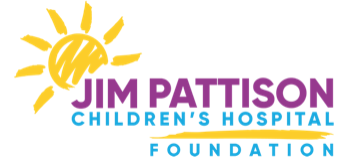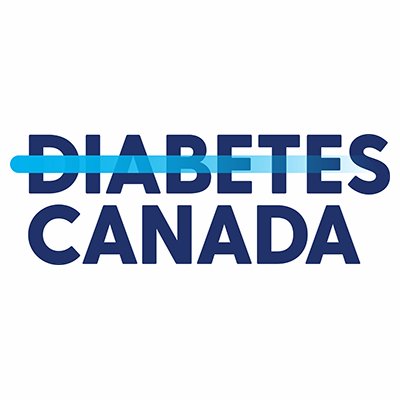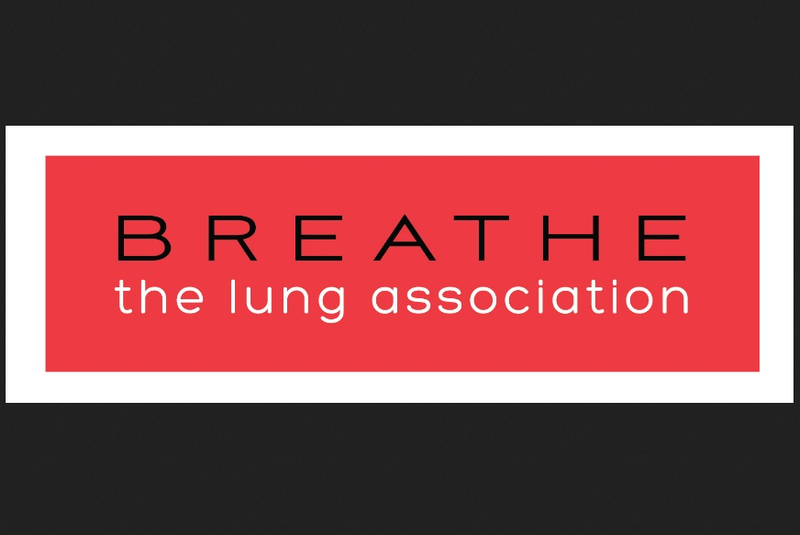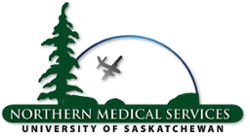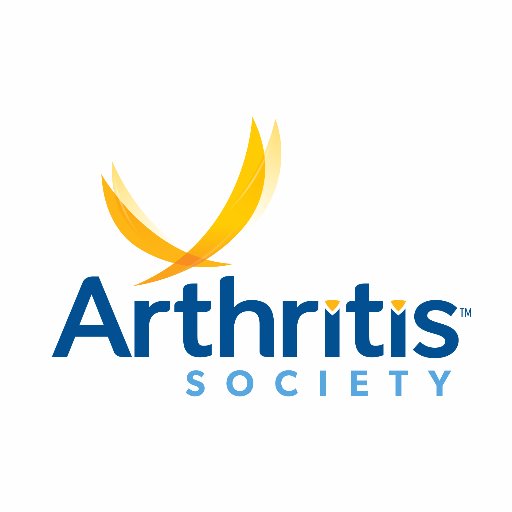We are overwhelmed by grief with the horrifying news out of Cowessess First Nation regarding 751 unmarked graves at the site of a former residential school. What was known by Indigenous people for decades has now been found for all to see.
It is impossible to overstate the devastation that residential schools wrought on generations of Indigenous children and their families. Today’s children are still harmed by these effects and ongoing systemic inequities. We recognize the part that our health care system played in perpetuating these atrocities and that there is much work to do in dismantling the systemic racism and discrimination, which continues to oppress our patients today.
There are well-established starting points to help our society heal from this grievously oppressive past. The United Nations Declaration on the Rights of Indigenous Persons is not yet fully implemented in Canada, and neither are many of the Calls to Action from the Truth and Reconciliation Inquiry or the Murdered and Missing Indigenous Women and Girls Inquiry. We would ask both federal and provincial governments to lead us, as well as our communities, in prioritizing action for our future as we acknowledge the unspeakable tragedies of our past.
Sincerely,
Members of the Department of Pediatrics, SK
Treaty 2, Treaty 4, Treaty 5, Treaty 8, Treaty 10 and Treaty 6 Territory and Homeland of the Métis
News
Loading...
About Us
What we do
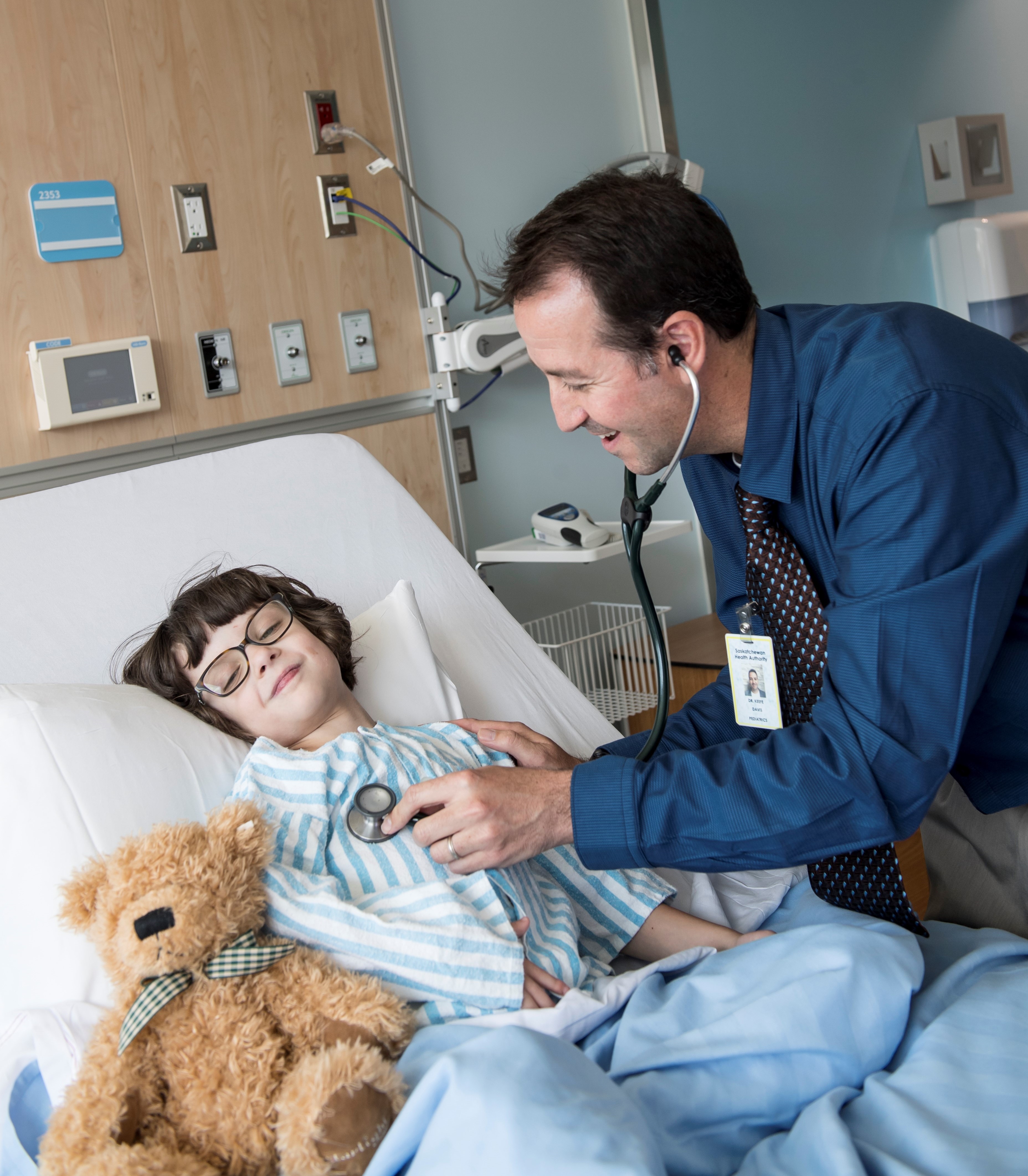
Our Services are offered in Saskatoon, along with numerous traveling clinics that are conducted regularly at sites throughout the province. We are dedicated to providing exemplary health care for children, ensuring excellence in training of future pediatrics health care providers, undertaking meritorious research and advocating for the health and well-being of children and youth.
Divisions and Services
Pediatric cardiology helps children with heart conditions. Kids can get support and treatment from before birth (fetal life) up to and including age 16.
Heart conditions include:
- Heart defects
- Heart rhythm issues
- Heart muscle issues
The pediatric cardiology team is based at the Jim Pattison Children’s Hospital in Saskatoon and provide services at the Regina General Hospital every week. Kids can receive treatment, heart ultrasounds and other heart tests through their pediatric cardiologist at these hospitals and in outpatient (non-overnight) clinics. In some cases, the team can be accessed through Telehealth if you and your child are unable to visit these two hospitals.
Mending Little Hearts
The Mending Little Hearts Fund of Saskatchewan is a designated charitable fund which was created in partnership with the Jim Pattison Children’s Hospital Foundation of Saskatchewan. It is made up of a group of passionate volunteers who bring varied experience to the team. This dynamic group of people includes Pediatric Cardiologists, Nurse Clinicians, Echosonographers, Psychologists, Dieticians, Social Workers, Administration Staff, Exercise Therapists, Researchers from the University of Saskatchewan and the University of Regina, and volunteer heart parents. This fund contributes to the health, wellbeing and survival of children living with heart conditions across Saskatchewan by:
- Providing additional essential clinical equipment for families to use at home to monitor their child’s status.
- Allowing a child and family to attend CHAMPS Camp.
- Supporting local research for children with heart conditions.
- Developing family support services and educational resources.
Research
The research team of the Mending Little Hearts Fund is made up of doctors and researchers from the College of Kinesiology, College of Medicine at the University of Saskatchewan and the Department of Psychology at the University of Regina. The research team contributes to and helps facilitate programming at CHAMPS Camp, in addition to numerous research initiatives outside of camp involving children, youth, and adults with CHD. Click here to learn more about Mending Little Hearts Research.
Learn more about CHAMPS Camp here
Saskatchewan’s pediatric intensive care unit provides innovative and sophisticated life sustaining therapy for all critically ill children in the province. Although situated in the Royal University Hospital in Saskatoon, coordinated systems, a dedicated pediatric transport team and remote robotic technology allow for quick access to critical care expertise regardless of a child’s postal code. In efforts to meet the increasing demands of a growing population, programs continue to develop ensuring that the children of Saskatchewan have access to the highest level of care possible. https://picusaskatchewan.ca
Programs
1. Transport Team
Pediatric specialized transport has evolved since it’s inception 20 years ago, and plays an integral role in Saskatchewan’s pediatric critical care delivery. With broader geographic access and advancements in skills and technology, our pediatric specialized transport team is able to extend timely critical care into rural and remote communities.
Through extensive support from Jim Pattison’s children’s hospital foundation, Saskatchewan’s pediatric critical care transport team performs over 500 transports per year. The team safely transports children between provincial facilities, enabling assess to the appropriate level of care. With highly sophisticated ventilators, advanced cardiopulmonary monitoring and portable blood work, the team is able to initiate life sustaining therapy in a timely manner.
To deliver the highest quality care, our research for this program focuses on patient outcome metrics, and scoring systems that assess severity of illness.
2. Remote Presence Telehealth
Universal and timely access to pediatric specialized care is a substantial challenge. Saskatchewan’s geographical range makes provision of medical expertise in remote communities extremely difficult. Utilizing remote presence robotic devices have helped to bridge these challenges, allowing us to directly visualize and examine critically ill patients for a prompt diagnosis and accurate treatment plan. Our recently published studies reflect the safety and feasibility of this innovative technology, and how we are trying to close the access gap that permeates health care.
We currently support 3 northern communities and thanks to the ongoing commitment from the Saskatchewan ministry of health partnered with Jim Pattison Children’s Hospital Foundation, our goal is to service an additional 5 communities during 2018. We will continue expanding until all Saskatchewan children have timely access to our subspecialty support, regardless of their postal code.
3. Neurocritical Care
Nearly 25% of children admitted to PICUs have either a new injury to their brain/spinal cord or a neurologic complication of their illness. Despite the expertise found in children’s hospitals, there remains an unmet need for these very vulnerable patients: the breadth of neurologic injuries is immense but the research supporting clinical practice is poor.
Pediatric neurocritical care has recently emerged as a subspecialty. The Jim Pattison Children’s Hospital had the vision to develop this area, and currently provides innovative care through multidisciplinary expertise from neurology, critical care, neurosurgery, psychiatry and neuroradiology. Newer developments include the utilization of non invasive ultrasound monitoring for traumatic brain imaging (transcranial dopplers and optic nerve sheath diameters), improved access to continuous electroencephalography, quick brain MRI (to minimize CT radiation exposure), early mobilization and delirium screening. Several exciting and novel initiatives are currently in the planning stages.
4. Extracorporeal Therapies
Critically ill pediatric patients may require advanced technologies to support failing organ systems. Over the years, we have developed the following:
- Continuous Renal Replacement Therapy (CRRT) is a form of dialysis utilized for serious kidney injuries in some of our sickest patients. The Jim Pattison Children’s Hospital Foundation was integral in supporting the initiation of this program in 2007.
- Therapeutic apheresis results in the removal of blood components that are disease or symptom causing. Children with severe infections, neuromuscular diseases, hematologic/thrombotic disorders may be overwhelmed by inflammation and clotting and require plasma exchange. Utilizing the Spectra Optia aphaeresis system (donated by the JPCHF), Saskatchewan’s PICU has performed over a 100 treatments for a variety of disease processes. Recently, leukopheresis has been introduced, to assist children with high white cells in certain cancers.
- Extracorporeal Membrane Oxygenation (ECMO) has become an essential tool in the care of children with cardiac and pulmonary failure that has not responded to conventional management. In collaboration with our pediatric cardiologists, surgeons, and perfusionists, ECMO is initiated when necessary.
5. Respiratory Care
Our multidisciplinary team of physicians, respiratory therapists and nurses strive for excellence in respiratory care through the use of standard and emerging therapies. Our expertise includes high flow therapy, non-invasive ventilation and non-conventional therapies such as non-invasive high frequency oscillatory ventilation (nHFOV), invasive high frequency oscillatory ventilation (HFOV) and high frequency jet ventilation (HFJV).
Through innovative technologies we are pushing conventional boundaries to provide unique and individualized respiratory care to meet the needs of our patients. The Jim Pattison Children’s Hospital Foundation has allowed us to become pediatric leaders of electrical impedance tomography (EIT) by equipping our unit with Dräger Pulmovista 500 technology. We also employ other tools including lung ultrasound and quasi-static pressure-volume measurements.
6. Research
Our innovation and desire to advance patient care is deeply rooted in a philosophy of ethical clinical research. Guided by the scientific process, our programs continue to develop and evolve with the goal to optimize patient care. Led by specialized intensive care researchers, important clinical problems or questions are scrutinized, dissected and then studied in a concerted fashion. Our research continues to be well supported by institutional, Jim Pattison Children’s Hospital Foundation, provincial, and national grants.
Sharing our research is critical to the program, as our discoveries may help other critical care providers with their difficult patients or scenarios. We are proud of our published work in peer review journals.
7. The Pediatric Simulation Program
The care of pediatric patients is becoming increasingly complex, and requires skills and knowledge sharing between multiple caregivers. Simulations are scenarios designed to closely approximate real situations - usually for the purposes of training or evaluation. Medical simulation based education and training provides an opportunity for team training without exposing patients to unnecessary harm.
With tremendous support from the Jim Pattison Children’s Hospital Foundation, we use the Laerdal SimJunior patient simulator, which can be operated remotely using a tablet-based device. SimJunior represents a 6-year-old child that simulates a wide range of conditions from a healthy, talking child to an unresponsive, critically ill patient. The Simulation Program supports orientation and skill maintenance for new and existing members of the PICU, Pediatric Inter-facility Transport Team, and pediatric providers on the ward.
Developmental disorders may include cognitive or learning disabilities, global developmental delays, autism, neuromotor conditions such as cerebral palsy, genetic disorders, communication disorders, hearing or visual impairments, and behavioral disorders.
Developmental pediatricians provide consultation and work closely with a child’s or youth’s “circle of care,” integrating information from other specialists and allied health team members. They advocate for optimizing child and youth abilities within the family, learning environment, culture and community.
Our outpatient setting, the Alvin Buckwold Child Development Program (ABCDP), is a unique place for kids to learn and grow. We offer diagnostic and treatment services to children 0-18 years of age, as well as support for families. Our commitment is to serve children and adolescents who display, or are at significant risk for, developmental, cognitive and/or physical challenges.
Using a family-centered approach, we work in partnership with parents to try to understand the specific needs of their child. We are open to receiving requests from parents and caregivers, physicians and other agencies.
Clinics within the Alvin Buckwold Child Development Program
- Developmental Assessment Clinic
- Neuromotor Assessment Clinic
- FASD Assessment Clinic
- Brain Injury Clinic
- NICU Follow Up Clinic
- Muscular Dystrophy Clinic
- Spinal Cord Clinic
- Orthopedic Clinic
- Augmentative and Alternate Communication Team
- Feeding Team
- Specialized Seating Team
Research Activities
Research activities within developmental pediatrics focus on:
- Complex pediatric therapies follow-up
- Autism spectrum disorders
- Fetal alcohol spectrum disorders
- Children with complex neurodevelopmental disorders
- Medical education
These patient care handouts have been peer-reviewed by the division of Pediatric Emergency Medicine, and serve as helpful guides to common pediatric complaints.
PEDIATRIC ENDOCRINOLOGY & DIABETES PROGRAM
The division of Pediatric Endocrinology and Diabetes offers comprehensive inpatient and outpatient consultative & follow-up care for the children of Saskatchewan with all forms of diabetes and numerous hormonal conditions and concerns.
CLINICAL
Our multidisciplinary Pediatric Diabetes team cares for over 500 children in the province of Saskatchewan with Diabetes Mellitus. This team, supported by the LiveWell program, includes: Diabetes Nurse Educators, Diabetes Dietitian Educators and Social Work with referral to Clinical Health Psychology as needed. There are currently 3 physicians providing pediatric diabetes care in Saskatoon, including Dr. Au-Yeung (pediatrics), Dr. Inman (endocrine) and Dr. Nour (endocrine). Our program works closely with diabetes education centres throughout the province in order to provide unified and consistent pediatric diabetes care. This team manages the complex medical and educational needs of children affected by Diabetes Mellitus, including Type 1, Type 2 and others. The team provides teaching, resources and ongoing follow-up for a rapidly evolving host of treatment options in Diabetes including insulin injections, insulin pumps, monitoring devices and other medical therapies. The staff is also involved in the yearly Diabetes Canada Saskatchewan Children’s Camp for children with diabetes. Additionally, staff provide diabetes related education services to schools. Clinical resources for patients and families followed by the pediatric diabetes clinic are available online.
Our Endocrinology clinics are provided by Drs. Inman and Nour and are supported by a Pediatric Endocrinology Nurse. This team provides expertise in the diagnosis and treatment of a host of endocrine disorders, including: growth, pituitary, thyroid, pubertal, calcium/bone, adrenal, and hypoglycemic disorders. Functional endocrine testing is conducted by our experienced Endocrine Nurse. Comprehensive endocrine treatment and teaching is provided by the endocrine team.
By the summer of 2017, under the leadership of Dr. Inman, the Pediatric Health and Lifestyle Clinic will offer an interdisciplinary approach to the assessment and follow-up of children affected by obesity in the Saskatoon Health Region. This team will include: physician, nurse, dietitian, exercise therapist, and psychologist. This clinic will be a consultative approach with intermittent follow-up and will help to provide patients and families with further connections within their local community. Additionally, throughout the province, families are encouraged to participate in the free, self-referral MEND (Mind, Exercise, Nutrition, Do-it!) program.
RESEARCH AND EDUCATION
Our division is actively involved in medical teaching and research within the University of Saskatchewan. Current research projects have included both diabetes and endocrine related diseases. Currently, our centre is actively recruiting family members of those affected by Type 1 Diabetes to participate in the multicentre TrialNet pathway to prevention study. Those interested in participating can contact the coordinating research nurse, Joan at 306-844-1224.
HOW TO REFER
Pediatric Endocrine:
Referrals can be sent by a family physician, pediatrician or nurse practitioner. Referrals can be faxed to: 306-844-1536. Our endocrinology administrative assistant is available at 306-655-2048
Pediatric Diabetes:
Non-urgent Referrals can be faxed to: 306-655-6758
Urgent Referrals: **NOTE REFERRALS FOR SUSPECTED NEW ONSET TYPE 1 DIABETES FROM PHYSICIANS SHOULD NOT BE FAXED AND DIRECT PHONE REFERRAL TO THE PEDIATRIC ENDOCRINOLOGIST ON-CALL THROUGH ROYAL UNIVERSITY HOSPITAL SWITCHBOARD IS RECOMMENDED ** RUH Switchboard: 306-655-1000
Our diabetes administrative assistant is available at 306-655-2199
Pediatric Health and Lifestyle Clinic:
Referrals to the Pediatric Health and Lifestyle Clinic can be sent to: 306-655-6758
**Note: At this time, this clinic is only able to accommodate patients within the Saskatoon Health Region.
General Pediatrics
The Division of General Pediatrics in Saskatoon is a dynamic group of general pediatricians who are active in the clinical, and academic visions of the Saskatchewan Health Authority and the College of Medicine. The division aims to provide evidence based, child and family centered care in a team based environment, where clinical care and learning occur together to provide the best care and experience possible for patients and their families.
Saskatoon Pediatric Consultants Members
- Dr. Mahli Brindamour
- Dr. Carla Krochak
- Dr. Erin Woods
- Dr. William Quan
- Dr. Linda Xiao
- Dr. Alison Markland
- Dr. Samantha Holbird
- Dr. Tanya Marciniuk
Pediatric Outpatients, Jim Pattison Children’s Hospital
- Dr. Daniel Au Yeung
- Dr. Krista Baerg
- Dr. Janna Brusky
- Dr. Morgan Hewitt
- Dr. Ayisha Kurji
- Dr. Karen Leis
- Dr. Kate Moolman
- Dr. William Weiler
Clinical
Members provide both inpatient care at the Jim Pattison Children’s Hospital (JPCH) and outpatient care either at JPCH or at Saskatoon Pediatric Consultants. This allows the division to provide a medical home for patients while also provide continuity of care with the same team when patients with complex care needs are admitted to hospital.
- Inpatient Clinical Care - The division provides inpatient coverage for the two Clinical Teaching Unit (CTU) teams for patients admitted to Acute Care Pediatrics. These teams provide care for general pediatric patients admitted to hospital and consultative services for patients admitted to medical and surgical specialties as requested. Education for trainees is provided in a system of graduated responsibility based on the trainee’s level.
- General Pediatric Outpatient Clinics - The division provides referral based consultative services as requested by other physicians, including follow up of those patients requiring ongoing medical care.
- Specialty Clinics/Services - Many members of the division have special interests, and provide specialized clinical care in these areas, in addition to the above services. These include:
-
- Cleft Lip and Palate Clinic (Dr. Linda Xiao)
- Complex Cardiology Clinic (Dr. Erin Woods)
- Cystic Fibrosis Clinic (Dr. Janna Brusky)
- Hemangiomas (Dr. Morgan Hewitt)
- Northern Health Services (Drs. Mahli Brindamour, and Linda Xiao)
- Pediatric Diabetes (Dr. Daniel Au Yeung)
- Pediatric Eating Disorders (Drs. Ayisha Kurji and Ali Markland)
- Pediatric Gastrointestinal Disorders (Drs. Daniel Au Yeung, and Linda Xiao
- Pediatric Pain Clinic
- REACH-Refugee Engagement and Community Health Clinic
- SANCTUM 1.5
Academic-Teaching
The division is committed to providing excellent pediatric medical education to both Undergraduate and Postgraduate medical trainees. This is done through large group lectures, small group interactive sessions, and clinical teaching in clinic and on the CTU. Members also provide education to other Colleges, including the Colleges of Dentistry and Nursing. For specific areas of interest, see each individual faculty’s profile.
Academic-Research
Members of the Division of General Pediatrics are actively involved in research. Please see each faculty member’s profile as well as the Department of Pediatrics Research page.
For further information or inquiries, please contact:
Dr. Ayisha Kurji
Division Head, General Pediatrics
(306) 844-1278
Canadian Pediatric Chronic ITP Registry
Chronic ITP Database
Passwords are required with the final site database. Access can be obtained by clicking the following link. Once a username and password has been inputted, registered users may log into their reporting centre.
Please contact Dr. Kaiser Ali via email or telephone 306-655-2744 for details.
Rationale
- To provide a forum to discuss group data as equal partners with other National/International ITP Registries.
- To update management practices of childhood ITP through collaboration.
- To promote education and awareness of chronic ITP.
Purpose of the Registry
Phase I
1.1 To study the natural history of chronic ITP based on
- age groups
- prodroma
- clinical features
- platelet count at diagnosis
1.2 To assess bleeding manifestations and analyses of their responses to therapies (possible identification of “outliers” with common response to a particular type of treatment, e.g., IVIG, or of unusual responses)
1.3 To examine the initial response to therapy (within first 6 months) as a possible predictor of response to future treatments
1.4 To develop guidelines for management of chronic ITP
1.5 To review splenectomised patients to detect common features that may be predictive of outcome
Phase II
2.1 To assess the impact of disease on quality of life
2.2 To research the role of Helicobacter pylori
2.3 To transition into, and examine commonalities with, adult chronic ITP
Phase III
To enable & facilitate clinical trials, e.g. innovative therapies
Publications
Belletrutti M, Ali K, Barnard D, Blanchette V, Chan A, David M, Luke B, Price V, Ritchie B, Wu J. Chronic Immune Thrombocytopenic Purpura in Children: A Survey of the Canadian Experience and Review of the Literature. Submitted for publication May 2005.Members of the Canadian Pediatric Chronic ITP Working Group
- Kaiser Ali, MBBS (Chair)
- Dorothy Barnard, MD
- Mark Belletrutti, MD
- Victor Blanchette, MD
- Anthony Chan, MD
- Michèle David, MD
- Brian Luke, MD
- Gregg Parchomchuk, B.A (Hons), B.Comm
- Bruce Ritchie, MD
- John Wu, MD
Mailing Address
Canadian Pediatric Chronic ITP Working Group
Kaiser Ali, MBBS (Chair)
University of Saskatchewan
20 Campus Drive
Saskatoon, SK S7N 4H4
Our division provides the following clinical services:
For inpatients – on-call consultation service for patients admitted with challenging and/or severe infections, as requested by general pediatricians and other subspecialists.
For outpatients – providing follow-up of patients originally seen as inpatients with a wide variety of acute infections, as well as patients with chronic infections such as hepatitis B, hepatitis C, infections occurring in patients with HIV/AIDS or other underlying immunodeficiency disorders. We also assess, and provide care for infections and other medical issues seen in new immigrants, refugees or adoptees. We provide recommendations for routine or special immunizations for children with a variety of medical disorders or international travel-related needs.
The division is active in pediatric research, including:
- Collaboration with the Canadian Pediatric AIDS Research Group (CPARG) – surveillance for the effectiveness of perinatal measures to prevent maternal to child transmission of HIV.
- Immunization Monitoring Program ACTive (IMPACT) – surveillance of hospital admissions with vaccine-preventable diseases (VPD), as well as those with severe or unexpected adverse events following immunization (AEFI).
- The Special Immunization Clinic (SIC) – assessing children with previous AEFI, providing immunization to those deemed safe to revaccinate, and monitoring for follow-up adverse event(s). Specific immunization studies have also been added to SIC, including the effectiveness of revaccinating after treatment for leukemia. Other projects may also be added.
- Infectious disease outbreak studies (e.g. trichinellosis in northern Saskatchewan), retrospective outcome studies (e.g. children admitted with respiratory syncytial virus) and others.
There are currently three faculty members in the division:
- Dr. Athena McConnell, MD, MSc, FRCPC
- Dr. Rupeena Purewal, MD, FRCPC
- Dr. Rupesh Chawla, MD, MSc, FRCPC
Our division appreciates the support from our administrative assistant, Jennifer as well as the nurses, social worker, pharmacist and other members of the Positive Living Program (PLP, who serve our patients with HIV). We wish to acknowledge the faculty members of the adult infectious diseases division, who also provide on-call services for pediatric patients throughout the years.
Genetic Counsellors
- Janet Lucas, MS, CCGC
- Lacey Benoit, MS, CCGC, CGC
- Candice Jackel-Cram, MSc, Phd, CCGC
- Tara Scriver, MS, CCGC, CGC
- Andrea Hawrysh, MSc, CCGC, CGC
- Angelique Lang, MGC, CCGC
- Kaitlyn Johnston, MSc, CCGC
Genetic Services in Saskatchewan
Below is some information on Genetic Services in Saskatchewan in PDF format.
Jim Pattison’s Children’s Hospital (JPCH) serves as the tertiary referral centre in obstetrics and neonatology for central and northern Saskatchewan, and cares for approximately 12,000 births per year. The Neonative Intensive Care Unit (NICU) is located at the JPCH We are 45 beds single room NICU with 5 twin rooms.
The Division of neonatology includes six full time neonatologists, one intensivist, research staff, staff dedicated to neonatal transport and neonatal follow-up, as well as administrative personnel. The faculty demonstrates an unusually strong commitment to the education of residents as well as to a rapidly expanding research program. The research interests of the neonatologists are diverse but with particular concentration in the area of clinical care, randomized control trials, and basic science. Research activity is enhanced by laboratory space dedicated to neonatology in Royal University Hospital.
Medical Director: Dr. Sibasis Daspal
Neonatal Follow-Up Program
Medical Director: Dr. Sibasis Daspal
Physicians:
- Dr. Sibasis Daspal
- Dr. Neil Wonko
- Dr. Lannae Strueby
- Dr. Asma Nosherwan
- Dr. Abraham Ninan
- Dr. Anna Donovan
In this program, all NICU graduates with high risk of developing disabilities such as HIE, extreme preterm, IUGR are looked after by a multidisciplinary team (PT, OT, SLP, clinical psychology, dietician).
Neonatal Transport Service
Medical Director: Dr. Asma Nosherwan
Neonatal transport service provides patient care related to newborn care across the northern Saskatchewan, triaging for patient transfers and providing outreach education
Neonatal targeted Echocardiography and Hemodynamics Program
Dr. Sibasis Daspal
Dr. Asma Nosherwan
Assessment of PDA, hypotension, systemic organ blood flow are performed at the bedside to assist clinical decision-making process.
Neonatal Point of Care Lung Ultrasound:
Physician lead: Dr. Sibasis Daspal
Use of bedside lung ultrasounds are performed to assist clinical such as surfactant administration, detection of pneumothorax interventions, weaning/optimization of respiratory support, detection of lung fluid.
This program also provides regular training for other physicians, NNPs, CAs and Neonatal Transport team.
Neonatal Neurocrictical Program
This program is responsible to provide care for sick kids with HIE, extreme Preterms, seizure, IVH with the help of organ blood flow assessments (Anterior and MIddle cerebral arteries), Near infra red spectroscopy (NIRS), cerebral function monitoring.
We provide total body cooling for babies with moderate-severe HIE.
This program also looks after micro premies (less than 26 weeks) with the help of neuro critical care bundles.
Research Activities
- Multi-centered, Multinational randomized Control Trials
- RSV Risk Factors in Neonates of All Gestational Ages
- Prevention of RSV Infection in Congential Heart Defects
- Surfactant Research
- Evidence-based medical Research on Clinical Practice for Quality Improvement
The Pediatric Nephrology Division, within the Department of Pediatrics, provides comprehensive kidney care for the children of Saskatchewan. We prioritize a multidisciplinary approach to care with a team of professionals including physicians, nurse coordinators, dietitians, and social workers.
Clinical
We collaborate with all specialties and offer joint clinics with Urology, Cardiology, and Endocrinology. We are also able to provide Telehealth services.
Healthcare services include inpatient and outpatient management. Specific expertise includes treatment and management of:
High blood pressure (Hypertension)
Hematuria (blood in the urine)
Proteinuria and nephrotic syndrome (protein in the urine)
Problems with normal kidney development
Infections of the kidney
Kidney Stones
Acute kidney injury
Glomerulonephritis (inflammation of the kidneys)
Chronic kidney disease
Dialysis
Kidney Transplantation
The division of Pediatric Neurology is committed to providing high quality medical care to children with nervous system and muscle disorders. Our services include comprehensive diagnostic evaluation and treatment. A high standard of care is maintained by using evidence-based medicine, pursuing continuous medical education, and research.
Vision
Creating a benchmark model for a Pediatric Neurology provincial program in Saskatchewan to provide high quality services at home.
Scope of Practice
- Epilepsy (seizures)
- Headaches
- Neuromuscular Disorders
- Cerebral Palsy
- Movement Disorders
- Developmental Delay
- Multiple Sclerosis
- Neurogenetic Disorders
- Neurometabolic Disorders
- Neonatal Neurology
- Pediatric EEG, EP, EMG and NCS
Comprehensive Programs
- Pediatric Epilepsy Program of Saskatchewan
- Neuromuscular Program
- Headache Clinic
- Ketogenic Diet Clinic
Research Interests
- Quality improvement in epilepsy care
- Clinical trials in epilepsy treatment
- Epilepsy surgery outcomes
- Correlation of neurophysiological findings to clinical outcome
Education
The Pediatric Neurology division is affiliated with the College of Medicine at the University of Saskatchewan and participates in undergraduate and postgraduate teaching. Several medical students and resident doctors are engaged in training opportunities, seeking a high degree of certification.
Our Staff
| Christie Klein (Secretary) |
| Gina Kangas (Secretary) |
| Wendy Simonson (R.N) |
| Doris Newmeyer (Research Nurse) |
| Bernadette McCallum (Social Worker) |
| Dr. Shashi Seshia. MD, FRCPC |
| Dr. Simona Hasal. MD, FRCPC |
Referral System
We accept new patients after we receive an official referral from family physicians, pediatricians, nurse practitioners, neurosurgeons, and neurologists. Please discuss with your primary care physician regarding indications for referral to pediatric neurology clinics.
Contact Information
Division of Pediatric Neurology
Royal University Hospital
103 Hospital Drive
Saskatoon, SK, S7N 0W8
Canada
Phone: 306-844-1236
306-844-1280
Fax: 306-844-1535
Link Related
The Canadian Association of Child Neurology
The Pediatric Pulmonary Division at Royal University Hospital provides comprehensive and coordinated healthcare to manage respiratory health concerns for the children of Saskatchewan.
Our service deals with diagnosis and management of most breathing disorders including obstructive airways disorders like asthma or cystic fibrosis, sleeping disorders, premature lung disorders, and congential airway anomalies. We provide the services of a full pulmonary function lab, sleep monitoring, sweat testing, immune/allergy testing, and examination of the airway with flexible bronchoscopy.
Our Cystic Fibrosis clinic supports more than 40 children and their families. Our physicians and nurses work with a multidisciplinary team of Respiratory Therapy, Physiotherapy, Dietary and Social Work. This team manages the intense, complex medical needs and education of these brave children.
Our Division strongly supports education and research. Dr. Darryl Adamko, Division Head, is an Associate Professor and Clinician Scientist within the University of Saskatchewan. We have a dedicated staff of nurses and respiratory therapists to help children and their familes understand and manage their illness. This includes asthma educators, certified through the Lung Association of Saskatchewan Resp Trec-Respiratory Training and Educator course.
No service is able to function optimally without administrative support. The Pediatric Pulmonary Division is fortunate to have exceptional administrative support to assist our patients and families, and ensure the smooth and efficient management of our clinic.
Referral to our Pulmonary Clinic, or request for Pulmonary Function testing, can be requested by a family physician or pediatrican. Referrals can be faxed to 306-844-1514.
Request for Asthma Education by a Certified Asthma Educator does not require a physician referral. Requests may be directed to:
- Crystal Spehar, RN at 306-655-2265
Programs
The Department of Pediatrics is committed to developing programs that provide the highest standards of education for undergraduate and postgraduate healthcare trainees, as well as for practicing physicians and affiliated pediatric healthcare providers.
Educational programming is provided by members of the Department of Pediatrics in the following categories:
- Undergraduate Medical Students (Clinical Sciences)
- Final Year Medical Students - Junior Undergraduate Rotating Students Interns (JURSIs)
- Pediatric Residents and Residents from other medical disciplines
- Community Physicians and Nurses through Continuing Medical and Nursing Education Programs
Please contact us if you would like further information about the educational programming that we offer. In order to send you more information, be sure to provide the following:
- name
- title
- affiliation
- mailing address
- telephone number
- fax number (if applicable)
Thank you for your interest in the Department of Pediatrics Educational Programming.
Our Pediatric Undergraduate Medical Education (UGME) program is designed to be fun, interesting, challenging and to prepare you with the professional attitudes and skills that will benefit you throughout your career - no matter what area of medicine you choose to practice in.
Our program is structured around two principal parts of your curriculum:
- the Professional Skills program
- the Clinical Clerkship program
We offer body system oriented didactic and small group session instruction to medical students in their pre-clinical years. Final year medical students (JURSIs) rotate through in-patient and out-patient services during a 6-week rotation.
TBD
Elective Coordinator, Canadian & International Students
Professional Skills II
Professional Skills II builds on professional and clinical skills acquired in Phase A to allow students to become increasingly proficient at establishing diagnoses and planning therapeutic interventions. Because of the degree of student / patient interaction during this course, the values and attitudes pertaining to the physician/patient relationship will also be stressed.
Objectives
- Demonstrate how to obtain a patient-centered pediatric history including focused questions that would assist in differentiating etiologies (Medical Expert; Communicator)Demonstrate a complete pediatric physical examination (Medical Expert)
- Synthesize the information, using data gathered from the history and physical examination, into an assessment of the presenting problem, including the most likely diagnosis and a differential diagnosis (Medical Expert, Communicator)
- Develop a management plan appropriate for the patient (Medical Expert)
- Orally present the case, including history, physical examination, diagnosis and management plan, to the team (Medical Expert, Communicator)
- Compile a written case report (Medical Expert, Communicator)
- Collaborate effectively with peer group and the health care team (Collaborator)
- Demonstrate appropriate professionalism skills including respect for patients and health team personnel, timeliness, dress, honesty, appropriate boundaries, responsibility, integrity and confidentiality (Collaborator, Professional)
Learning methods
The objectives will be achieved using the clinical learning methods listed below:
- Interaction with patients and pediatricians in clinics and on wards
- Histories and physical examinations on patients (inpatients / outpatients)
- Case presentations on histories and physical examinations
- Participation in small group discussions with regards to:
-
- differential diagnosis formulation with respect to system or symptom based complaints
- generation of appropriate initial investigations with respect to system or symptom based complaints
- Verification of physical findings at the bedside in small groups
Clinical Clerkship
ROTATION DESCRIPTION
Duration: 6 weeks
Call: 1 in 4
Vacation/Leave: 5 working days and either the weekend before OR the weekend after; cannot be during the last week of the rotation
ROTATION OBJECTIVES
By the end of the rotation, students will be expected to:
- Demonstrate competency (perform an appropriate history and physical examination, synthesize data to arrive at a differential diagnosis, use relevant diagnostic tests, participate in patient care) in the management and treatment of patients with the following conditions (Expert, Communicator, Manager):
- Anemia
- Respiratory symptom - cough, wheeze, stridor
- Fever
- Heart murmur
- Fluid and electrolyte abnormalities
- Head and neck symptom - otalgia, pharyngitis
- Rash
- GI symptom - vomiting, abdominal pain, diarrhea
- Acute CNS symptom - altered level of consciousness, seizures, meningitis
- Acute respiratory distress
- Sepsis
- Child with a chronic illness
- Identify and practice elements of anticipatory guidance for patients in the following age categories (Expert, Communicator):
- Newborn/infant/toddler
- School age/adolescent
- Describe the elements of well child care, including (Expert, Communicator):
- Stages of normal development
- Nutritional issues including appropriate diet and sequencing of infant nutrition
- Recognize and provide theclinical conditions in a patient that result in a differential diagnosis, microbial etiology where related, and provide an initial treatment/management plan when possible, for the following (Expert, Communicator):
- Failure to thrive
- Obesity
- Isolated motor/language/social delay
- Gross developmental delay
- CNS headache
- GU (UTI)
- Leukemia
- Purpura
- Osteomyelitis and septic arthritis
- Demonstrate competency in the following procedures and skills (Expert):
- Otoscopy
- Interpret a chest radiograph
- Interpret a complete set of vital signs
- Perform a complete newborn examination
- Perform an assessment of hydration status
- Plot and interpret a growth curve
- Discuss advantages and disadvantages of pharmacologic and non-pharmacologic treatment modalities based upon the patient's context and issues (Expert, Communicator)
- Identify the elements of informed consent (Expert, Communicator)
- Maintain clear, accurate, and appropriate records of clinical encounters (Expert, Communicator)
- Communicate in a language easily understood by patients and family members (Communicator)
- Demonstrate an awareness of cultural and socio-economic issues that impact patient and population health (Expert, Communicator, Professional)
- Demonstrate an understanding of and practice evidence-based medicine (Expert, Scholar, Communicator)
- Identify and appropriately use resources to improve knowledge base (Scholar)
- Demonstrate insight into one's own limitations and methods to improve (Professional, Scholar)
- Demonstrate application of an ethical framework in the clinical decision-making process, including patient confidentiality, privacy and autonomy (Expert, Communicator, Professional)
- Participate with a team of allied health professionals, respecting individual roles, in the care and treatment of a patient (Collaborator, Communicator)
- Demonstrate appropriate professionalism skills including respect for patients and health team personnel, honesty, integrity, altruism, appropriate boundaries, responsibility, timeliness, and striving for personal balance (Prefessional)
- Practice the art of comforting patients and alleviating suffering (Communicator, Professional)
- Promptly identify emergency situations and respond appropriately (Expert)
Aims of the Course
This course is designed to give the fourth year students instruction in providing care for the pediatric and adolescent patient and to enable the student to recognize the need for referral, when necessary.
The instructional methods used include: informal bedside teaching, formal lectures, outpatient teaching, experience in doctors’ offices, experience in special clinics, participation in various academic rounds, and taking part in patient care activities under supervision. This will be supplemented by individual reading about important topics in the pediatric core material. While on the wards, students are expected to take responsibility, under supervision, of the day-to-day care of their assigned patients.
The instructional objectives of the rotation include general pediatric objectives with regard to knowledge, skills and attitudes, and specific objectives related to particular topics and organ systems.
The student will develop clinical skills which include: interviewing the parent and the patient, the taking of a complete history, the performance of a proper physical examination, and the completion of medical records in approved style. The student will also be taught to communicate these facts to other members of the health team at the bedside, during seminar hours, or in the classroom and will be taught to correlate the information obtained into a problem list and make appropriate plans for managing them.
The student will be made aware of the value and application of specialized help from other health personnel and community resources. He/she will be encouraged to make use of the reference library, textbooks, journals, tapes and other resources dealing with clinical pediatrics.
Students are expected to read around their cases and to expand their general pediatric knowledge by independent learning to supplement academic half-day, JURSI seminars and clinical teaching.
STRUCTURE OF THE ROTATION
Saskatoon
- Four-week rotation on one of two pediatric inpatient units (Orange, Purple) at Royal University Hospital
- Two weeks in Pediatric Outpatient Clinics attending general and subspecialist pediatric clinics as well as Pediatric Emergency shifts and one day in the NICU. Subspecialist pediatric clinics include those that are on-site at the Royal University Hospital, as well as Social Pediatrics and Developmental Pediatrics Clinics. Social Pediatrics are run out of school-based clinics. Developmental Pediatrics clinics are based at the Kinsmen Children’s Centre.
The Department of Pediatrics offers funding for 4 years within our core General Pediatric Residency program.
Residents may choose to do 3 core years, and then go on to pursue a fellowship at an institution elsewhere; or stay on to complete their 4th year at the University of Saskatchewan. The Pediatric Residency Program is fully accredited by the Royal College of Physicians and Surgeons of Canada.
The Department offers accredited subspecialty fellowship training in Neonatal-Perinatal Medicine and Neurology.
Core Pediatric Residency Program:
The program endeavours to ensure that residents, upon completion of their training, are well equipped to provide comprehensive Pediatric care to all patients – from consultative Pediatric services to management of the critically ill patient.
Quick Facts:
- We have 26-28 residents within our program
- Most of the Pediatric subspecialties are represented. For those that are currently not offered, residents may do an away selective in each of years 2-4, in addition to their elective time
- Our Social Pediatrics division provides trainees with the opportunity to learn about access to care through school-based clinics
- Dynamic growing Pediatric Faculty dedicated to teaching
- Childrens Hospital of Saskatchewan is underway
Objectives for the Pediatric Training Program:
- During the 3 or 4 years of training, residents gain competency through comprehensive exposure to a diverse Pediatric population.
- At completion of their training, residents are expected to demonstrate competency to practice as a General Pediatric Consultant.
- Residents must have met the requirements in all of the 7 CanMEDs Roles.
- Residents must demonstrate professionalism; have good communication skills; understand and demonstrate how to collaboratively work within a health care team; advocate for patients and families at various levels; demonstrate the ability to be a self-directed learner.
Knowledge and skills acquired include:
- Recognition of normal/variations in normal growth and development of infants, children and youth
- Recognition and management of a wide range of Pediatric problems and diagnoses; both common presentations of common problems/uncommon presentations of common problems
- Recognition and management of the acutely ill child
- Resuscitation of the sick newborn
- Critical appraisal, research methodology and application of evidence-based medicine
- Teaching and supervisory skills
|
Royal College of Physicians and Surgeons of Canada: Applying competency-based practices to residency education To contribute to the success of Canadian physicians and the delivery of high-quality patient care, the Royal College of Physicians and Surgeons of Canada has embarked upon an initiative to introduce competency-based medical education (CBME) in Canadian postgraduate specialty training and in professional practice in Canada. This initiative, called Competence by Design (CBD), aims to enhance patient care by aligning medical education and lifelong learning with evolving patient needs and empowering learners to more fully engage in their education process. CBD will use time as a framework rather than the basis for progression. It is not anticipated that the duration of training will change for the majority of trainees. Residency programs will be broken down into stages, and each stage will have a series of milestones based on required competencies. These milestones will create more targeted learning outcomes and involve more frequent, formative assessments within the clinical workplace to ensure residents are developing and receiving feedback on the skills they need. The Royal College anticipates that all specialty and subspecialty programs in Canada will adopt CBD in gradual phases. All disciplines have been divided into seven cohort groups, each of which will adopt CBD at different times. It is anticipated that national implementation of CBD within certain, individual programs could begin as early as July 2017 - with more disciplines to following in subsequent years.
All programs implementing CBD will continue to undergo the same rigorous accreditation processes as traditional programs. All CBD programs (and traditional programs) will continue to lead to Royal College approved certification. Certification for trainees in both CBD and traditional programs will include the completion of a Royal College examination; however, residents in CBD programs will also be assessed against program milestones throughout their training. Within a CBD program, all milestones (documented within an electronic portfolio) and the Royal College examination must be successfully completed to achieve certification. For more information, please contact the Royal College. |
USask Department of Pediatrics Residency Equity, Diversity, and Inclusion (EDI) Committee
This committee was created to ensure that EDI is woven throughout the ethos of the pediatric residency program. The committee is represented by pediatric residents from both our Saskatoon and Regina site and pediatric faculty members and is informed by EDI policies from both the College of Medicine and the University of Saskatchewan. Together we collectively create EDI specific initiatives within the residency program and contribute to those within the Pediatric department.
Current examples of incorporating EDI focused material within the program include hosting EDI Grand Rounds presentations, leading local EDI events, such as Orange Shirt Week, informing and visioning new initiatives within our pediatric academic and clinical programing. Representatives attend EDI meetings in both local and national forums. Looking forward, the committee is developing a resource tool with an extensive list of EDI focused funding and educational opportunities.
Click here to view our current EDI Policy.
Training Sites:
Saskatoon:
- Royal University Hospital - Acute Care, subspecialty training
- Alvin Buckwold Child Development Center- Developmental Pediatrics
- General Pediatric Consultant Practice
- Pediatric School-Based Clinics - Social Pediatrics
Prince Albert
- Community Pediatrics
Regina:
- Junior Ward Consultant Pediatrics/Child Maltreatment - Pediatric Teaching Unit
- Wascana Rehabilitation Center - Developmental Pediatrics
- Community Pediatric
| Administrative Office: | |
| PGME Program director | Dr. Mark Inman |
| PGME Co-director | Dr. Erin Woods |
| PGME Program Administrative assistants | Jeanine Dice Michelle Haley |
Patient and Family Advisory Council
The Patient and Family Advisory Council is chaired by Mrs. Brielle Lepp and works closely with the Department Head of Pediatrics. The Council strives to make positive changes by cultivating respectful empowering partnerships between patients, families, leadership and staff. It advocates for changes that enhance the delivery of high quality compassionate patient and family centred care.
Goals
• Promote improved relationships between patients, family and staff.
• Provide input into policy and program development, implementation and evaluation.
• Participate in the development and planning of new facilities and facility renovations.
• Channel information, ideas, needs and concerns of patients and families to hospital administration and staff.
• Review issues referred to the council and provide feedback.
• Help to develop or review informational materials for patients or families.
• Participate in education regarding Patient and Family Centered Care throughout the organization.
• Function as a liaison for patients and families serving in a variety of advisory roles.
Guiding Principles, Values, and Philosophy
• Our overriding guiding principles are those at the foundation of patient and family-centred care: respect participation, information-sharing and collaboration.• The PFAC will act in congruence with the MCHS Strategic Plan and the SHR Strategic Plan and values: respect, compassion, excellence, stewardship and collaboration.
• The Council will use collaborative dialogue and decision making processes that balance and respect the knowledge and expertise of the patients/families and the care providers.
• SHR will encourage participation of physicians and other members of the multidisciplinary care team in activities of the Council.
• The Council's role is to deal with comprehensive range of issues and ideas regarding family-centred care. While stories of personal or individual experiences with MCHS are welcome as examples, the role of the Council is not to be a support group or to resolve individual issues or concerns.
• The Council values diversity and promotes understanding and sensitivity towards diverse cultural and lifestyle practices and beliefs.
Research
SPRING, the Saskatchewan Pediatric Research and Innovation Group, is a consortium comprising a diverse group of University of Saskatchewan researchers all of whom are engaged in child health research.
SPRING Vision and Mission
Vision
SPRING's vision is to improve the health and well-being of children now and into their long-term futures through collaborative, visionary, translational research
Mission
To advance the intensity and productivity of Child Health Research in the Department of Pediatrics and the University of Saskatchewan by through multidisciplinary collaboration.
Contacts
 |
Director of Pediatric Research Dr. Darryl Adamko is a clinician (Respirologist) and research scientist. Dr. Adamko has a very strong record of research productivity and is extremely dedicated to translating research findings into useful applications to improve the health of our children. |
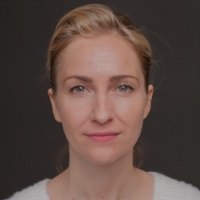 |
Research Facilitator Tova Dybvig is the Research Facilitator for the Department of Pediatrics at the University of Saskatchewan. In this role she supports faculty with their research activities including grant applications, editing, ethics applications, and several other research-related administrative tasks. |
 |
Biostaticisician Jagmeet Bajwa is the Pediatric Biostatistician for the Department of Pediatrics at the University of Saskatchewan. In this role he supports faculty and trainees with their research activities including developing, collecting, analyzing, and summarizing data. |
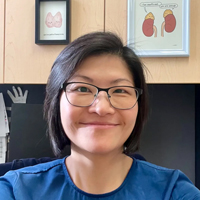 |
Pediatric Resident Research Director Dr. Daphne Yau – In this role, Dr. Yau will support pediatric residents with their scholarly projects. |
 |
Clinical Research Coordinator and RareKids-CAN Clinical Navigator Daislyn Vidal – In this role Daislyn will support faculty in the Department of Pediatrics with their research activities with specific emphasis on implementation of rare pediatric clinical trials at the University of Saskatchewan. She will work with investigators/study teams from the pediatrics department to initiate a timely, and efficient study start-up for rare disease pediatric clinical trials. |

Please join us on Thursday, April 3rd, 12-4 pm, for this research symposium featuring presentations from residents, graduate students, post-doctoral fellows, and undergraduate students engaged in child health research at USask.
Program
Lunch
Welcome & Opening Remarks
Keynote Speaker
Trainee Presentations: SHARE YOUR RESEARCH
Prizes and Closing Remarks
Location: Marquis Hall
Also available remotely via Zoom
Abstract Submission: Share your research!
Abstracts Due: March 16th, 2025
RSVP for Lunch: Eventbrite
For questions and/or submissions please email tova.dybvig@usask.ca

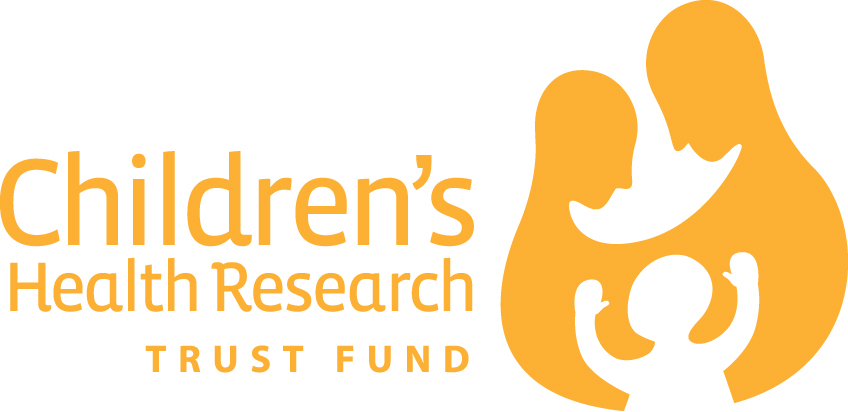 The Children's Health Research Trust Fund exists to promote and facilitate the highest standards of scientific research, to ensure the long-term health and well-being of Saskatchewan children.
The Children's Health Research Trust Fund exists to promote and facilitate the highest standards of scientific research, to ensure the long-term health and well-being of Saskatchewan children.
Please see below for details on the General Funding Pool, as well as the Special Funds relating to specific pediatric health care concerns.
For more information please contact:
The Children's Health Research Trust Fund
c/o Department of Pediatrics
Royal University Hospital
103 Hospital Drive
Saskatoon SK S7N 0W8 Canada
Phone: 306-844-1229
FAX: 306-975-3767
Email
The Children's Health Research Trust Fund is generously supported by tax-deductible contributions from:
• Individual Donors
• Community Sponsored Fund-Raising Projects
• Bequests
Donate to The Children's Health Research Trust Fund
CHRTF Special Funds
The Children's Health Research Trust Fund manages the following Special Funds:
The Adolf Polisiuk Research Fund
The Adolf Polisiuk Research Fund particularly encourages the submission of research proposals relating to Sudden Infant Death Syndrome, perinatal and neonatal medicine as well as studies for which obstetrical and pediatric collaboration is required.
The Idy Leonoff Research Fund
The Idy Leonoff Research Fund encourages submission of proposals relating to childhood cancer.
The Kiera Goertz Research Fund
The Kiera Goertz Research Fund promotes studies relating to the care and treatment of children with heart disease. The Fund particularly encourages applications from researchers representing any of the health care disciplines concerned with the welfare of children with heart disease and their families.
The Ludwig, Olga and Constance Kaye Research Fund
The Ludwig, Olga and Constance Kaye Research Fund exists to support and encourage research relating to the effects on children of infectious disease during their mother's pregnancy, particularly diseases which affect eyesight and/or hearing.
The Tamara Esther Avivi Research Fund
The Tamara Esther Avivi Research Fund was established to promote and facilitate research relating to improving the understanding, treatment and prevention of childhood asthma and allergic disorders.
The Richardson Research Fund
The Richardson Research Fund was established to promote research relating to neurologic disorders. In particular, the Fund encourages research relating to spinocerebellar degeneration and other forms of cerebellar ataxia. The Fund encourages research that contributes to new insights into these disorders that would lead to new therapies or cures.
Donate to the CHRTF, and indicate which special fund you wish to donate to in the Comments box.
Members of the Department of Pediatrics conduct research studies to improve health and services for patients and families in Saskatchewan.
The Permission to Contact Youth for Research Program allows youth and young adults to sign up to learn about future research study opportunities happening in the Department of Pediatrics.
Who is eligible?
Youth and young adults age 16-25 years who have accessed pediatric care in the past or may in the future.
By choosing to participate, you are not consenting to participate in a research study. You will receive information on research opportunities. Participation in this program is voluntary. You may withdraw any time without impact on your continuing medical care.
Interested in signing up? Visit the REDCap website, or contact us for more information.
Knowledge Translation Activities
Alert Community Prepared Hospital Program
Dr. Ron Siemens and team, a joint effort between the community of Natikiri, Lurio University, the University of Saskatchewan, and the Nampula provincial department of health, aims to decrease maternal and neonatal death rates in the Natikiri District of Nampula, Mozambique. Seven different strategies are being used to develop a sustainable home-to-hospital care continuum that will be integrated into the existing system. The goal is to ensure “Alert Community” members will be educated about family planning and sexual/reproductive health, and that a “Prepared Hospital” will be ready to receive labouring women and newborn babies in a safe and culturally sensitive manner.
Malaria case studies - What tools do you need to help patients?
Johnny's journey with iron deficiency anemia
USask medical student Sina Sayedinazad and Department of Pediatrics, Dr. Roona Sinha created a Cartoon to Engage Patients About Their Health. Iron deficiency is the most common nutritional deficiency globally. Some studies indicate a 79% prevalence rate in remote areas in Canada. It’s also particularly common in children.
USask Research Minute
USask pediatrician Dr. Ayisha Kurji (MD) discusses the relationship between childhood eating disorders and the COVID-19 pandemic.
Childhood Seasonal Illness - Saskatchewan Health Authority
Drs. Matthew Bradshaw, Ben Thompson, Tanya Holt, Anna Donovan, Keefe Davis, Linda Xiao, Darryl Adamko, Athena McConnell, Kate Moolman, Morgan Hewitt, Charissa Pockett, Susan Bobbitt, Munier Nour, Mehul Jariwala, Andrei Harabor, Bita Hashemi, Mahli Brindamour, Karen Leis, Ayisha Kurji, Rupesh Chawla share health information about childhood seasonal illness. This is a multi-part video presentation produced by the Saskatchewan Health Authority.
Measuring Research Success
This video highlights the research success from the Department of Pediatrics in 2023. Details of the video are included in the Pediatric Research Newsletter December 2023 Issue.
Measuring Research Success 2023 (panopto.eu)
Dried spot blood testing: How doctors and scientists learn about our health by looking at our blood
Video: Dried spot blood testing
Reducing the risk of all-terrain vehicle (ATV)-related harm in Saskatchewan children: A retrospective chart review of patients presenting to hospital from 2016-2021
All-terrain vehicles (ATVs) are three or four wheeled motorized vehicles with large, low-pressure tires designed for riding in off-road areas. ATVs have handlebars for controlling and steering the vehicle and a seat that is designed to be straddled by the driver. ATVs are used throughout Saskatchewan for transportation in rural areas, recreational use on trails, and for occupational activities on work sites, farms, and in remote areas.
Unfortunately, ATVs have become the cause of many devastating injuries and deaths to the residents of Saskatchewan. These injuries are not isolated incidents and span across all geographic locations and age groups, including seniors and toddlers.
Video: Reducing the risk of all-terrain vehicle (ATV)-related harm in Saskatchewan children
The Canadian Breakpoint Podcast by Dr. Rupeena Purewal
A Canadian Infectious Diseases Podcast by Canadian Infectious Diseases Physicians.
Researcher Under the Scope Podcast
Dr. Darryl Adamko: Little Lungs, Lessons Learned
January 8, 2023
Diagnosing pulmonary diseases like asthma in young children is still largely a matter of trial and error, according to Saskatchewan’s top pediatric respirologist.
As viruses and colds tear through schools and daycares across North America, Dr. Darryl Adamko wants to change that.
“If you have asthma this year and you're not taking your inhaled steroids, well you're rolling the dice,” said Adamko, who’s watched an influx of young patients over the past few months at the Jim Pattison Children’s Hospital in Saskatoon.
Harvard Macy Institute Podcast
June 2021
Leading Innovations in Healthcare and Education - interview by Victoria Brazil on my experience as an HMI scholar in 2020 when the world went virtual. This podcast features Dr. Tanya Holt
Researcher Under the Scope Podcast
Using CBD Oil to Treat Severe Epilepsy in Children, with Dr. Richard Huntsman
July 10, 2022
As a pediatric neurologist, Dr. Richard Huntsman sees children with the most medically complex forms of epilepsy. "It completely disrupts the life of a family," said Huntsman. "Limitations on what the child can do, limitations on what the family can do." "When the kids have really severe and difficult-to-control epilepsy, It's a huge burden on their parents." Eight years ago, parents started asking Huntsman about whether they could try treating their childrens' seizures -- with cannabis.
The Kids Are Not All Right, with Ayisha Kurji
Jan 16, 2021
Dr. Ayisha Kurji first noticed the uptick in children and teens being admitted to hospital in the spring of 2020. Some had cardiovascular damage. Some had gastrointestinal issues. But it wasn't because of Covid-19.
Why kids react differently to the coronavirus, with Rupeena Purewal
Nov 8, 2020
Rupeena Purewal says when the coronavirus infects children, their bodies react differently than those of adults. She's leading the only Saskatchewan-based clinical trials of human convalescent plasma on children sick enough to be admitted to hospital.
So far, there aren't many children with Covid-19 in hospital, but with the cold weather come higher infection rates, and the risk of other serious respiratory infections.
And, as she learns more about the coronavirus' asymptomatic spread, Dr. Purewal warns parents they cannot afford to keep skipping routine vaccinations or check-ups for their kids.
Motorcycles for maternal care: Ron Siemens makes the links in northern Mozambique
Oct 25, 2020
After raising five children of his own, Dr. Ron Siemens brings an empathetic, pragmatic approach to pediatrics. Whether it's in Saskatoon or in Mozambique, his goal is to make life better for infants, children and their families.
"You see all the obstacles parents have," said Siemens.
From road-testing motorcycle trailers for expectant mothers in Mozambique to creating self-sustaining chicken farms, Siemens explains what fuels his passion for healthy families and communities.
Peds Cases Pediatric Education Online Podcast
Acute Respiratory Distress Syndrome (ARDS)
Aug 3, 2018
This podcast presents an approach to acute respiratory distress syndrome (ARDS). Listeners will learn about the definition, pathophysiology, and management of ARDS. This podcast was developed by Dr. Michael Prodanuk, a Pediatrics resident at the University of Toronto, with the help of Dr. Tanya Holt and Dr. Gregory Hansen, both Pediatric Intensivists at Royal University Hospital in Saskatoon and the University of Saskatchewan.
Telehealth Forum in Northern and Indigenous Communities Report (2017) – featuring Dr. Tanya Holt (co-contributor)
Sponsored by College of Nursing, University of Saskatchewan.
Canadian Paediatric Society position statements and practice points featuring Department of Pediatrics Faculty:
Anxiety in children and youth: Part 2 – The management of anxiety disorders
Position statement: Oct 20, 2022
Principal author(s) Susan Bobbitt, Anne Kawamura, Natasha Saunders, Suneeta Monga, Melanie Penner, Debra Andrews; Canadian Paediatric Society, Mental Health and Developmental Disabilities Committee
Managing pain and distress in children undergoing brief diagnostic and therapeutic procedures
Position statement | Posted: Nov 1, 2019
Principal author(s) Evelyne D. Trottier, Marie-Joëlle Doré-Bergeron, Laurel Chauvin-Kimoff, Krista Baerg, Samina Ali, Acute Care Committee, Hospital Paediatrics Section, Community Paediatrics Section, Paediatric Emergency Medicine Section Paediatr Child Health 2019 24(8):509-521.
Saskatchewan Prevention Institute Reports
Pediatric Type 2 Diabetes in Saskatchewan – featuring Dr. Mark Inman
Pediatric type 2 diabetes (T2D) is a rising issue in Canada. Research shows an increasing prevalence of T2D in communities around the world, including in Canada. In Canada, some of the highest incidence rates are found in the First Nations pediatric population in the Prairie provinces. The Saskatchewan Prevention Institute partnered with Dr. Mark Inman (Pediatric Endocrinologist, Saskatchewan Health Authority) to bring together current evidence and data relevant to Saskatchewan and increase the understanding of the strengths, gaps, and needs related to pediatric T2D within Saskatchewan.
The partnership resulted in the development of this background report, based on a literature review, needs assessment survey, and environmental scan, which will inform future work regarding pediatric T2D in Saskatchewan. The report will be used first to inform the development of relevant resources for education and training for healthcare providers, and second, to develop appropriate education for patients and families, within the Saskatchewan context.
Innovating for Maternal and Child Health in Africa
Policy briefs – featuring Dr. Ronald Siemens
Enhancing access to safe and timely caesarian sections by prioritizing quality care and building strong partnerships in Nakitiri, Mozambique
Engaging the community in transforming maternal care
Community engagement helps eliminate illicit charges in health care
Diabetes Education and Screening in Youth at Onion Lake Cree Nation
Type 2 diabetes poses significant health risks for Saskatchewan First Nations youth and early detection can lead to improved health outcomes. However, testing is often challenging to access for at-risk populations, particularly those living in rural and remote areas, delaying diagnosis and treatment.
Given this, the Pediatric Diabetes Team at the University of Saskatchewan led a study to provide education and test a new screening method for type 2 diabetes in at-risk First Nations youth. The study was a collaborative effort between the research team and the Onion Lake community and Health Care Team, involving primarily grade 8 students from Eagleview Middle School, taking place over two days in October 2023. The education day featured interactive learning activities aimed at health promotion and diabetes prevention. The screening day, for those who consented, involved dried bloodspot hemoglobin A1c testing to screen for diabetes and health surveys, gathering valuable information on risk factors based on personal and family history.
The study found that of the 23 students screened, nearly 22% or 1 in 5 students screened positive for diabetes or pre-diabetes. Although those who screened positive were more likely to have a family history of type 2 diabetes, there were no clear features that distinguished these students from those who screened negative.
These results highlight the important role of screening for type 2 diabetes in at-risk youth. Even youth who screened negative will benefit from ongoing screening to detect diabetes as early as possible as they continue to be a risk. This presents an opportunity to intervene to reduce the risk of long-term health complications and keep the community and future generations healthy.
Report: Diabetes Screening in Youth at Onion Lake
Summary: Onion Lake Diabetes Education and Screening Project
RSV FAQ: What is RSV? Who is at risk? When should I seek emergency care for my child? (theconversation.com)Athena McConnell, University of Saskatchewan
As visits to emergency departments surge — and in some cases overwhelm hospitals — here are answers to frequently asked questions about Respiratory syncytial virus (RSV).Eating disorders have increased during COVID-19 — here’s how to recognize them and how to help
Ayisha Kurji, University of Saskatchewan
Eating disorders are often misunderstood, but earlier treatment improves outcomes. Let’s dispel some myths, learn how to recognize eating disorders and what to do if someone you love is struggling.
Pediatricians seeing a growing demand for medical cannabis for kids
Michelle Ward, L’Université d’Ottawa/University of Ottawa
Featuring Richard Huntsman, University of Saskatchewan
Pediatricians say they are getting increasing requests from parents for medical cannabis for kids for a growing list of conditions.
Children with arthritis lack vitamin D
Alan Rosenberg, University of Saskatchewan; Hassan Vatanparast, University of Saskatchewan, and Sarah Finch, University of Saskatchewan
A new study points to a clear link between childhood arthritis and abnormally low levels of vitamin D, especially ion northern countries.
Making the Links in Canada and Africa: Community engagement to improve maternal and child health
On October 15, 2020, over 120 researchers, students, health workers, donors, decision-makers, community members, and civil society organizations gathered for a three-hour virtual global conference to share lessons learned on community engagement to improve maternal and child health, drawing from experiences from the Innovating for Maternal and Child Health in Africa (IMCHA) initiative as well as from other work in Canada. The event was co-hosted by IMCHA and the University of Saskatchewan, Department of Pediatrics
Wrap Up Video
The Jingle Dress Dance- Kenecia Anderson
Child Health Research Trainee Day
| Current | Archived |
Current Newsletter
Archives
| 2024 | ||||
|
|
||||
| 2023 | 2022 | 2021 | 2020 | 2019 |
| March June December |
March June September December |
April September December |
January March May/June August November December |
|
| 2018 | 2017 | 2016 | 2015 | 2014-2011 |
| January March June |
January March May June September November |
January May September November |
January March May September November |
November 2014 September 2014 June 2014 March 2012 November 2011 |
Partners

This Week in Pediatrics
Event Calendar
Loading...
Contact
|
Department of Pediatrics |
T: 306-844-1068 |
| Dr. Terry Klassen Provincial Head 306-844-1065 |
Jeanine Dice Senior Postgraduate Program Administrative Assistant & Provincial Head Assistant 306-844-1068 |
|
| Cammie Morgan Undergraduate Program Administrative Assistant |
Nancy Groeneveld Postgraduate Program Administrative Assistant 306-844-1271 |
Michelle Haley Postgraduate Program Administrative Assistant 306-844-1217 |
| Nicole Shoaf Finance and Administrative Manager |
Mary Grace Benedicto Finance & Administration Coordinator |




